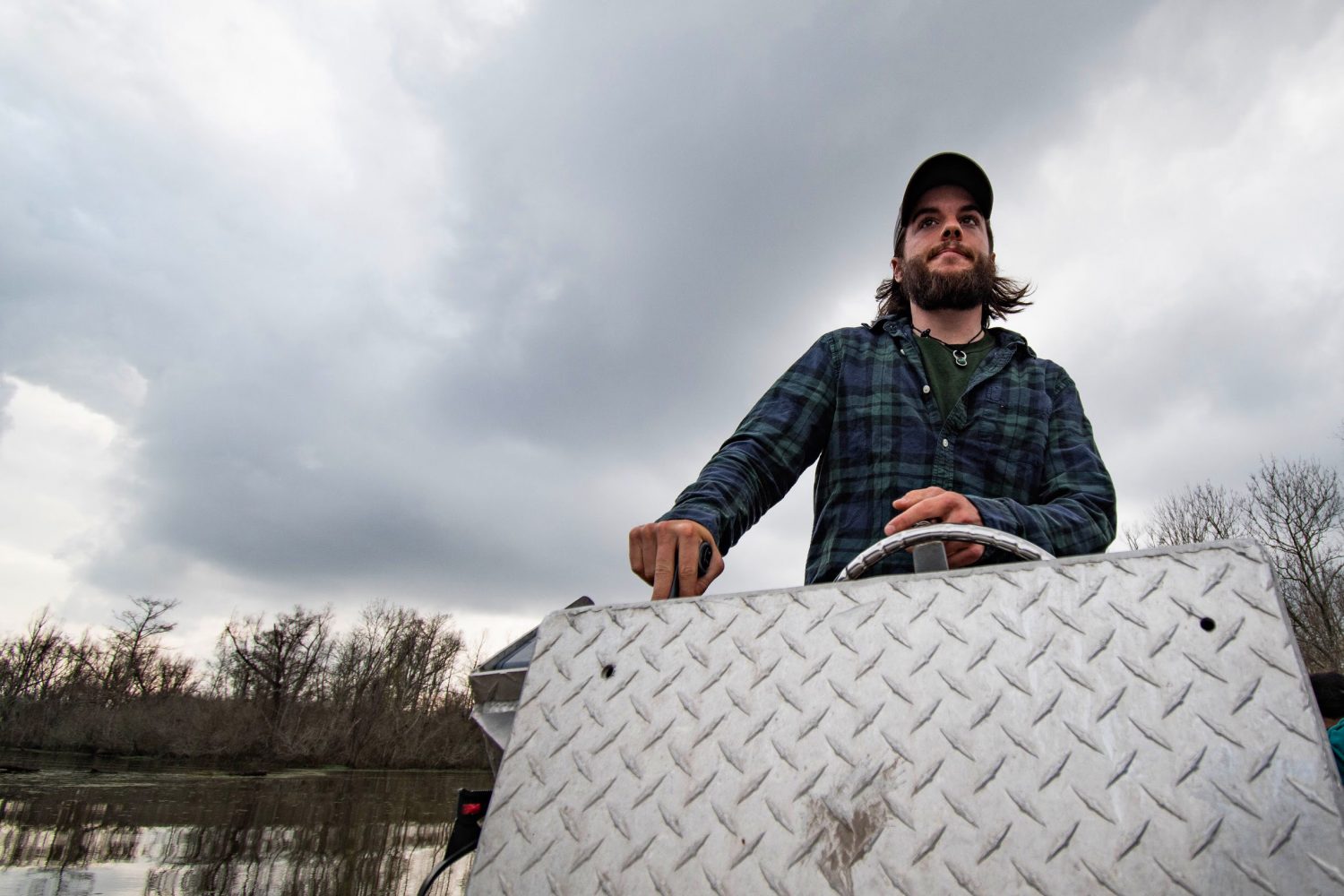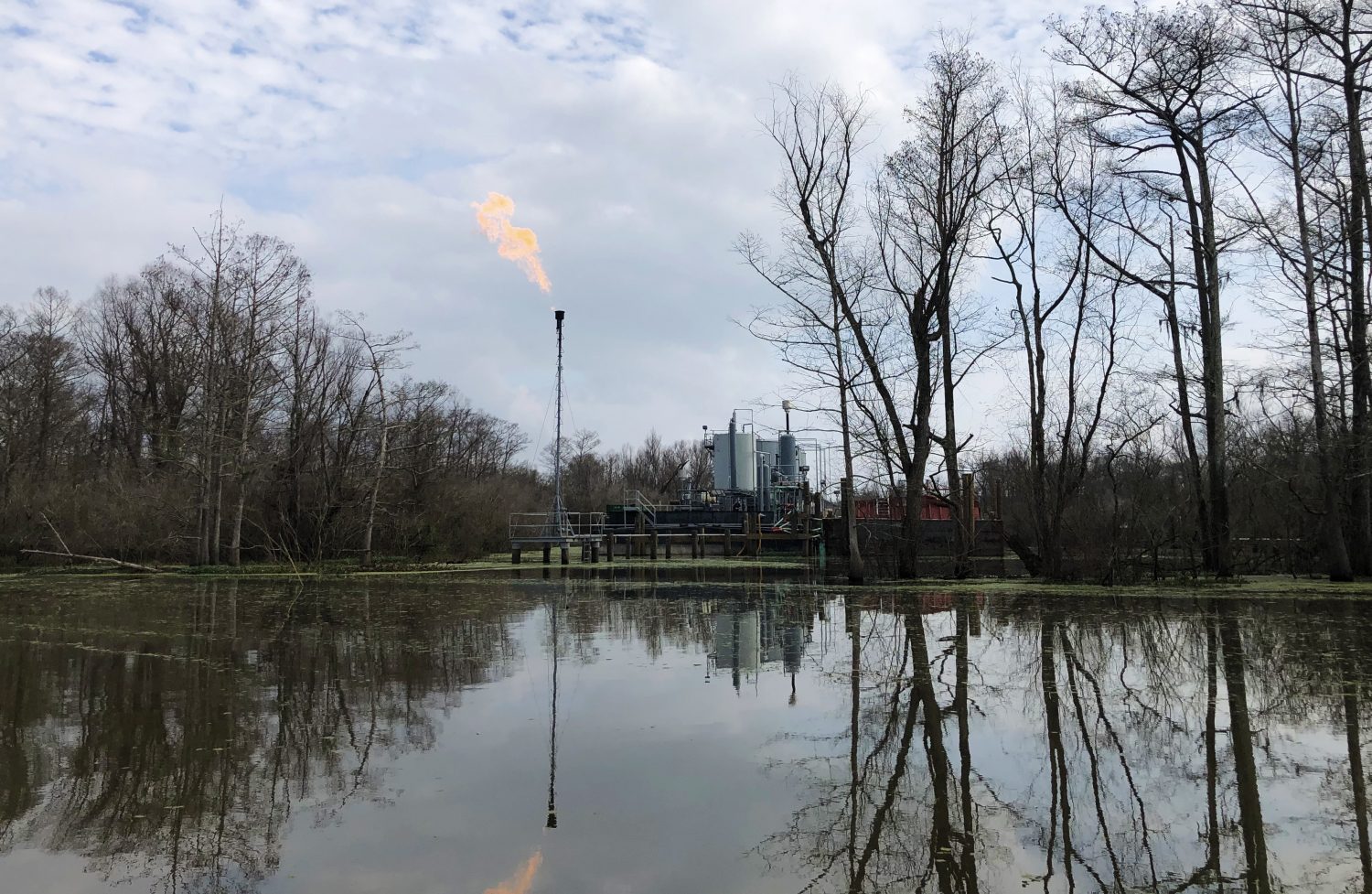By Grace King | April 29, 2019
PLAQUEMINE, LA. — As the sun peered through the cloudy sky, Albert “Al” Wilson looked back at the group of visitors sitting on his silver jon boat. He asked if they were ready, adjusted his charcoal baseball cap and switched on the outboard motor.
He was ready to show them the beauty of his home: the Atchafalaya Basin in Plaquemine, Louisiana. The basin is the largest wetland and swamp in the U.S. stretching 85 miles from Baton Rouge to New Orleans.

“I’m out on the boat every single day, whether I’m fishing or crawfishing or just enjoying the nature,” Al said. “I also do swamp tours full-time.”
Al grew up fishing in the basin with his father, Dean, who started The Last Wilderness Swamp Tours to “educate and gain support in protecting this seriously threatened paradise.” They offer $40 tours year-round to show visitors from around the world the beauty and importance of the basin.
As the years have gone by, Al has witnessed the environmental to his home and livelihood firsthand.
“They built [the Bayou Bridge Pipeline] right through an area where we do swamp tours and you can’t even recognize the entrance anymore,” Al said. “It also went through part of an area that I crawfish one of the most productive areas in the entire basin for crawfish.”
Al is one of just 300 crawfishermen left in the basin, according to a report from NBC News. Twenty years ago, there were more than 3,000.
Part of the decline in the crawfishing industry is because of the natural and human destruction of coastal wetlands. A study by Southeastern Louisiana University found that Louisiana has lost more than a million acres since 2000.
“They’re spewing mud and sediments filling the swamps up, so instead of being swamps it starts to become land,” Al said. “You can’t fish in those grounds anymore. It’s essentially destroyed.”
In Louisiana, most crawfishing businesses are handed down from generation to generation. It has become a $300 million industry for the state and many of those in business are low-income, uneducated and/or minority.
“We used to have very active river shrimp communities where they would go out and harvest,” said Darryl Malek-Wiley, an environmental justice organizer for the Sierra Club. “There’s no longer river shrimp and there’s other species that are being aged out. We humans have done a real good job of messing up what we found.”

Louisiana has nearly 50,000 miles of pipelines that provide natural gas to nearly all parts of the United States, according to the Louisiana Department of Natural Resources. LDNR said the pipelines are “an important factor in [Louisiana’s] economy.”
The most recently-completed project is the Bayou Bridge Pipeline expansion, which created a pathway for crude oil to run through the state from Lake Charles to St. James.
Energy Transfer Partners, the company behind the pipeline, said the pipeline will provide “Louisiana refiners with more efficient and sustainable access to North American crude oil as well as market diversification for North American producers.” In other words, a way to provide oil and gas to most parts of the contiguous United States.
Energy Transfer Partners also said the pipeline generated more than $420 million in wages through construction jobs.
Pastor Harry Joseph of the Mount Triumph Baptist Church in St. James tried to halt construction of the pipeline in 2017. He said projects like this one end up hurting low-income communities more than helping them.
“A lot of us don’t get the jobs,” Joseph said. “All the people that’s prospering is those that are in higher places.”
All the people that’s prospering is those that are in higher places.
Many members of his congregation do not have the necessary skills, transportation or ability to pass a drug test, he said. Instead, the jobs tend to go to richer, out-of-state workers.
“In many ways, we’ve sacrificed, but we have not benefited from this bounty of wealth that’s created here,” said Russel L. Honoré, the retired lieutenant general for the U.S. Army who led the military response to Hurricane Katrina.
Honoré currently leads the Green Army, a group in Louisiana dedicated to giving low-income communities a voice in the fight for environmental justice.
“We’ve got all this wealth and the politicians brag about the number of jobs they brought in,” Honorésaid. “If we’re doing so good, why are we so poor?”
Up next: Cancer Alley »
 Special Report from WUFT News
Special Report from WUFT News